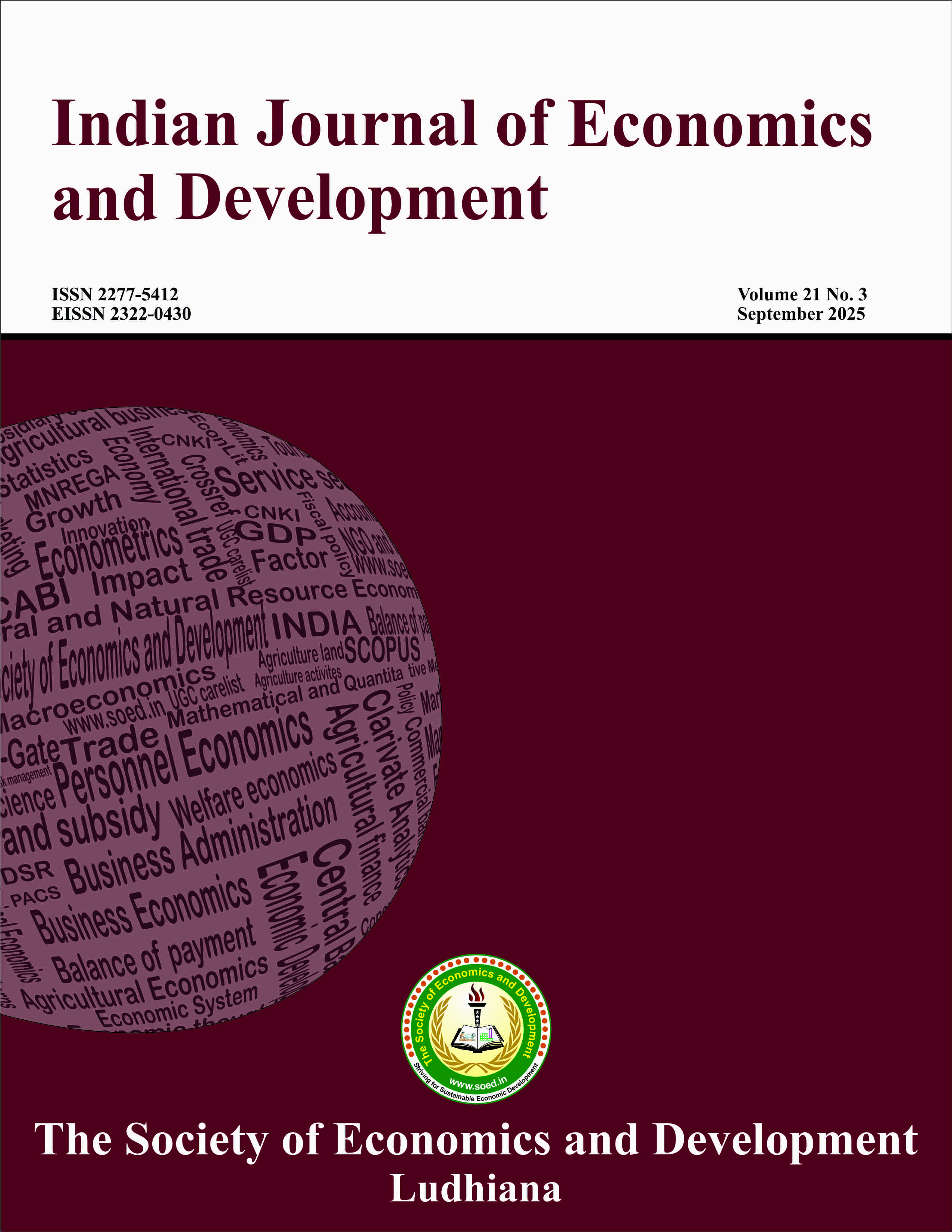Determinants of Gross Domestic Savings in Bangladesh: An ARDL Bounds Testing Approach

Price: ₹ 500
Author: Md Moniruzzaman Muzib, Md. Shimul Sarker, Sivasankar Vedi, and Keshav Soni
Author Address: Research Scholars and Professor, Department of Economics, Pondicherry University, Puducherry -605014 (India), Department of Economics, Mawlana Bhashani Science and Technology University, Tangail -1902 (Bangladesh
Keywords: ARDL, export, GDP, gross domestic savings, inflation.
JEL Codes: C32, E21, E31, F43.
Abstract
This study used the Error Correction Model (ECM) and Autoregressive Distributed Lag (ARDL) regression F-test to investigate the factors influencing gross domestic savings in Bangladesh from 1992 to 2021. The study determined the macroeconomic variables' short and long-term elasticity related to gross domestic savings. The outcomes indicated that while inflation and gross national expenditure had a negative influence on saving over both short and long-term periods, exports had a positive impact on gross domestic saving. While having a negative short-term impact, GDP and the broad money supply (M2) showed a positive and statistically significant long-term association with gross domestic savings. Long-term savings are positively and significantly correlated with deposit interest rates. The study showed that the system was sensitive to short-term imbalances, with a 52 per cent correction speed toward the long-run equilibrium value. These results provided policymakers with helpful information for creating efficient solutions to budgetary restrictions.
Description
Indian J Econ Dev, 2025, 21(3), 593-599
https://doi.org/10.35716/IJED-24235



